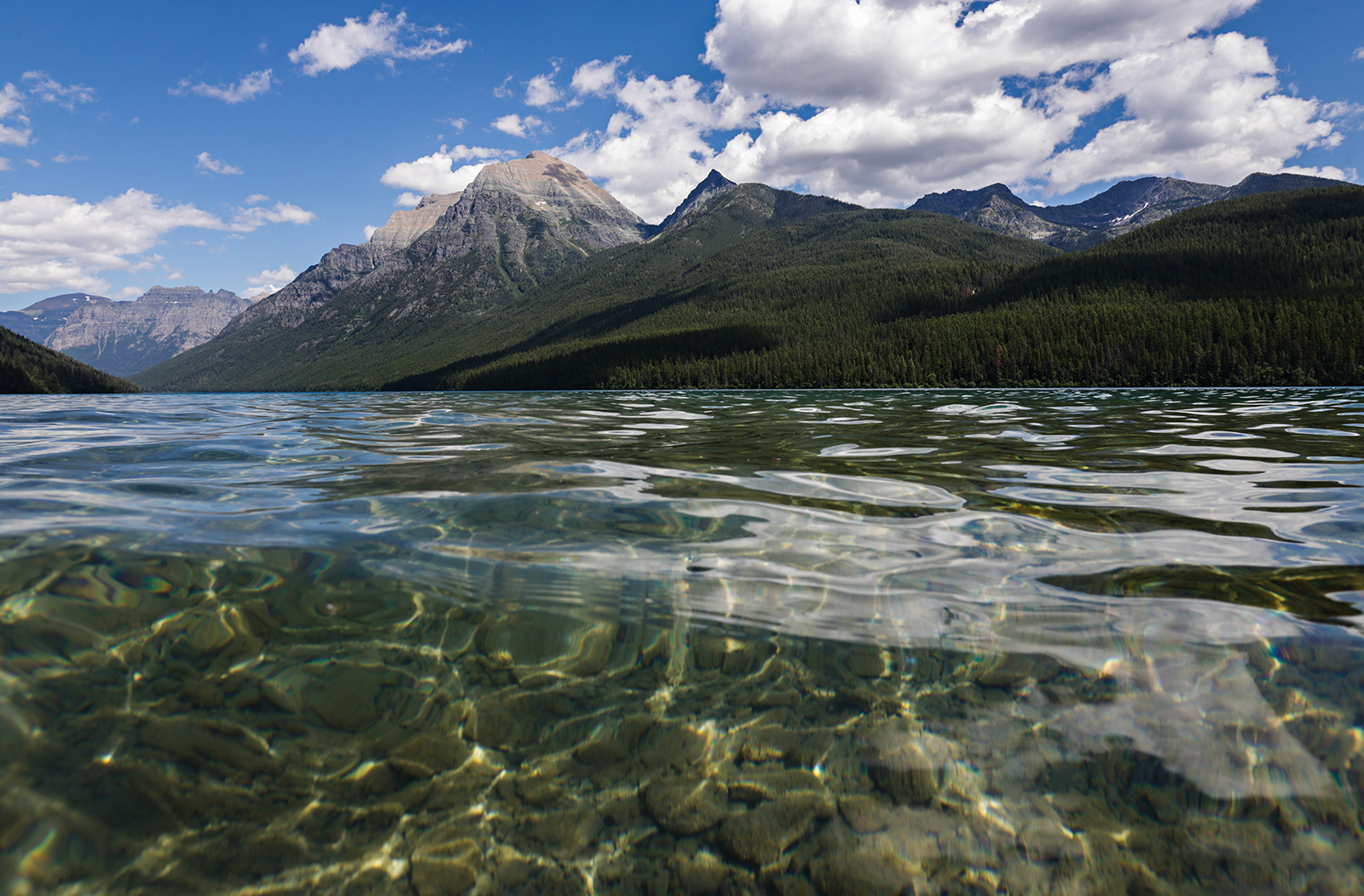Of all the jewels in the North Fork region of Glacier National Park, Bowman Lake is undoubtedly among the most gleaming.
The lake’s clear, cerulean waters are breathtaking in the most literal sense. Even on a scorching day in July, a dip can induce a shiver in a swimmer.
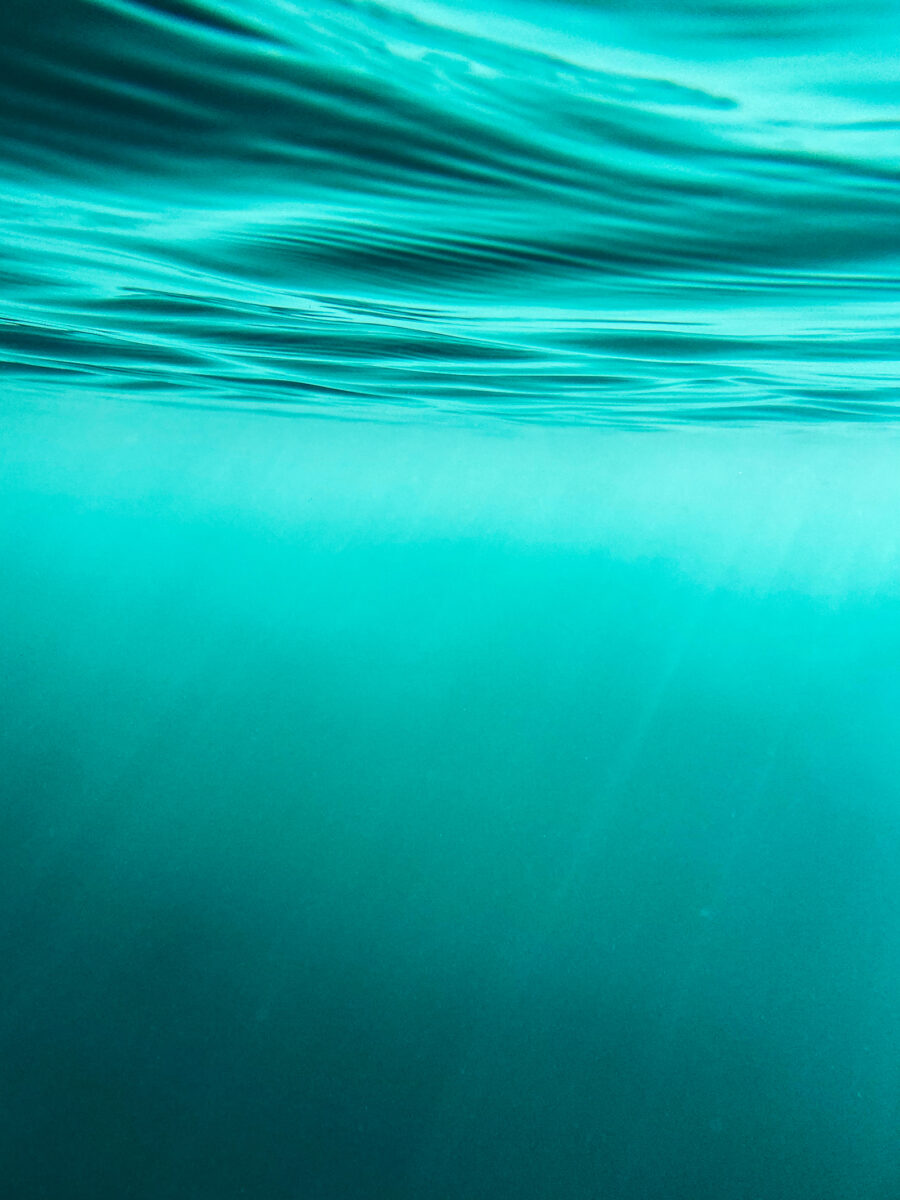
Framing this seven-mile-long aqueous treasure is a series of precipitous peaks. Rainbow Peak, with its colorful sedimentary striations, looms largest, with the summit towering nearly 6,000 vertical feet above the shoreline. So thick are the forests guarding the lower elevations, a boat is the only practical way to reach the foot of Glacier’s ninth-tallest mountain.
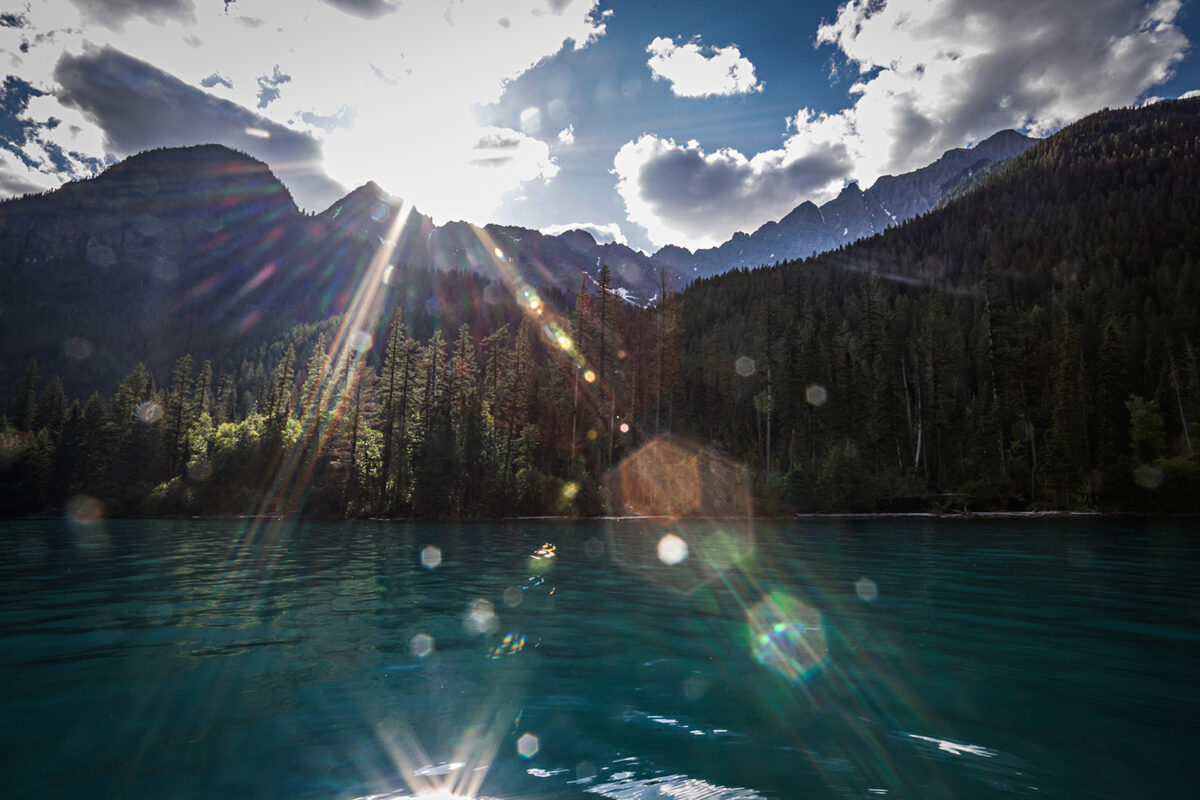
Capricious winds can turn the surface of Bowman Lake from a glassy waterscape into a wall of whitecaps within minutes — something the adventurer must factor into their assessment of the weather forecast. While the one-way distance from beachhead to peak is only about 3.25 miles, the elevation differential and untamed terrain ensures one acutely feels every step of the journey.
Once clear of the deadfall-clogged doghair lodgepole stands, the slope of Rainbow opens up into a lichen-coated boulder field, followed by subalpine meadows interspersed with flowers and tangles of krummholz.
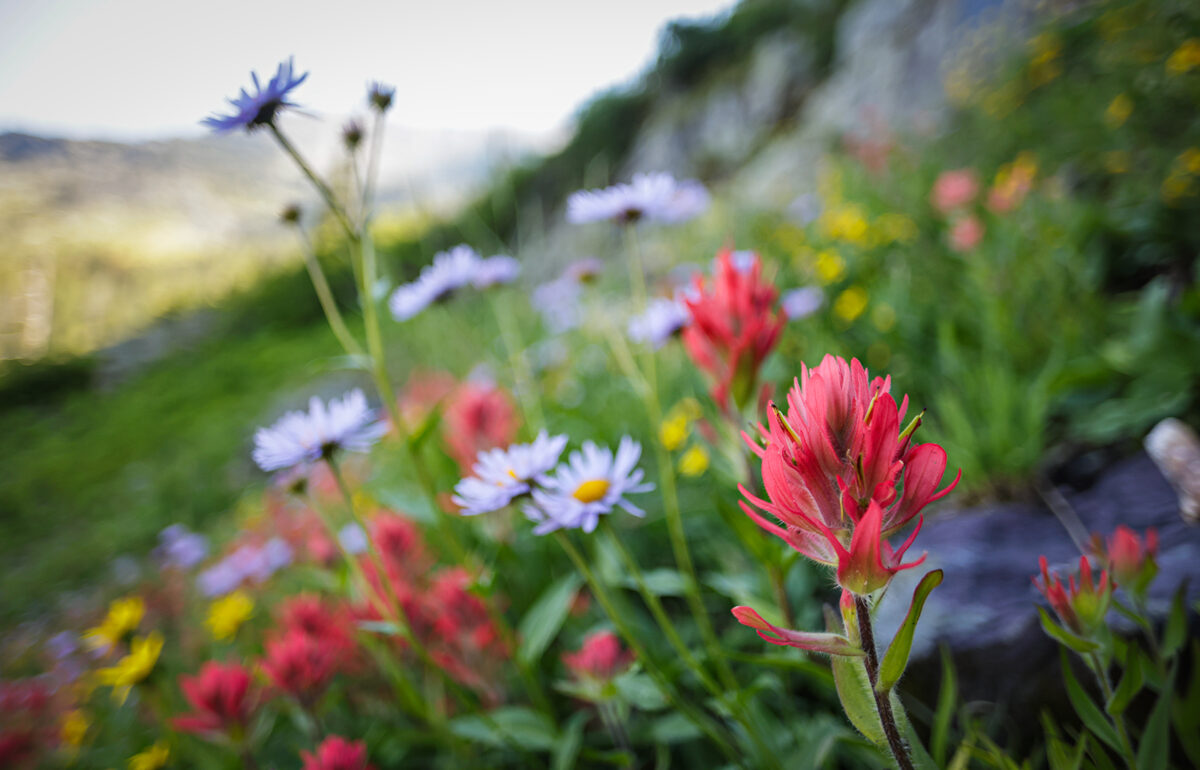
Upon reaching the saddle between Square Peak and Rainbow Peak, a climber is rewarded by a splendid new vista to the south, with fine views of Bighorn and Vulture peaks. From there, it’s a steep, but relatively straightforward scree slog to the top. Thousands of auburn-hued butterflies swirl over Rainbow’s summit, adding to the surrealness of looking down on the glacier clinging to the eastern slopes of the mountain in the heat of summer.
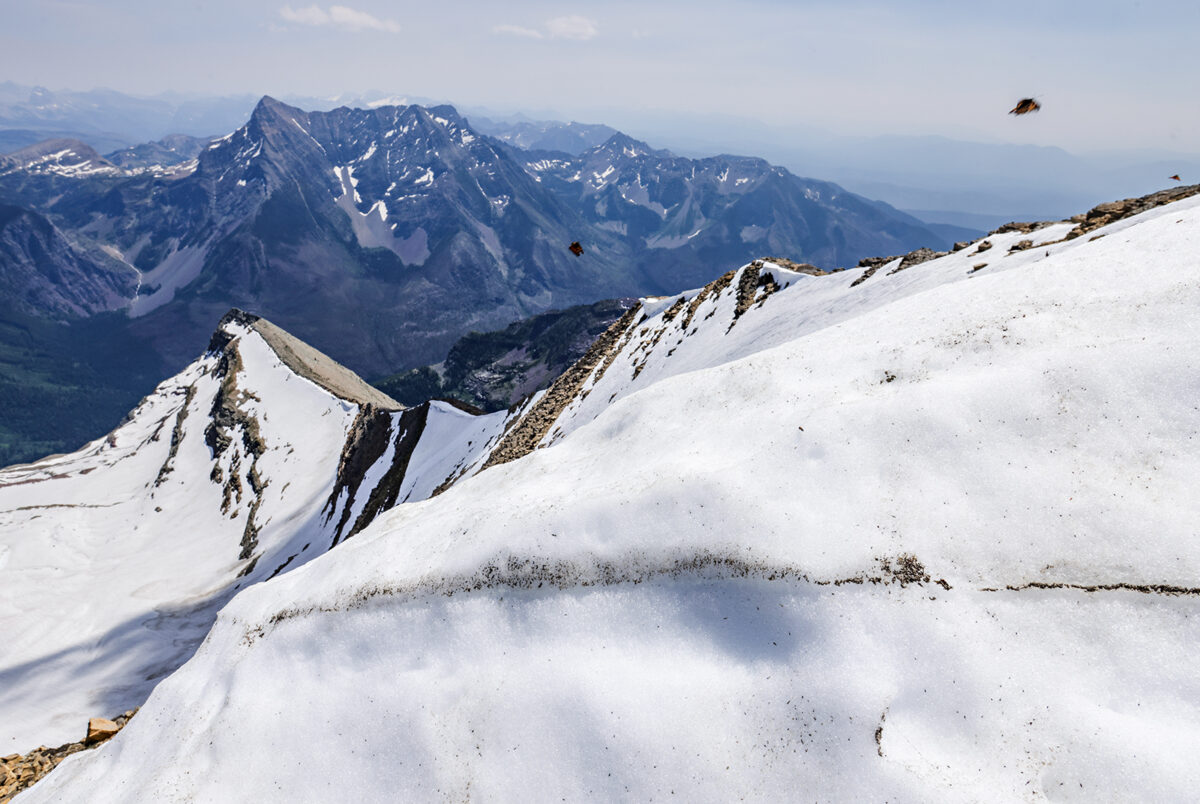
For more images, see the full gallery here
